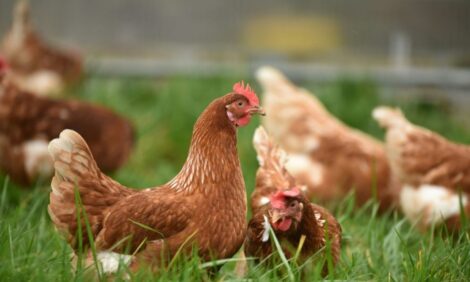



Environment drives DNA changes in Ethiopian chickens
Insight into how temperature, rain and land use influence the adaptation of village chickens could inform breeding programs.Key environmental drivers for adaptation relate to temperature, which is associated with altitude, rainfall, which impacts water availability, as well as soil and land cover, which affect food availability for foraging chickens, scientists found.
Regions of the genetic code of chickens are found to be associated with adaptation to these environmental stresses, the results suggest. For instance, changes in DNA allow chickens living at high altitude to be more resilient to low oxygen levels and cold temperatures than those surviving in lower elevation regions.
The findings will inform breeding programs to improve productivity and climate resilience of indigenous village chicken breeds, which are in increasing demand as sources of food in East African countries.
Harnessing genetic diversity
Scientists studied the DNA of indigenous chickens from villages in parts of Ethiopia with differing climates, and compared their findings with detailed climatic information for those areas.
The study, led by scientists from the Centre of Tropical Livestock Genetics and Health (CTLGH) at the Roslin Institute and the International Livestock Research Institute (ILRI), investigated the DNA of indigenous chickens from villages in parts of Ethiopia with differing climates. Scientists compared their findings with detailed climatic information for those areas.
"Ethiopia has a very wide range of climatic conditions and Ethiopian indigenous chicken breeds have an extensive genetic diversity that can be harnessed to help improve productivity and environmental resilience of poultry," said Dr. Almas Gheyas.
"This highly innovative research illustrates the uniqueness of African indigenous poultry, calling for their conservation and utilization through innovative breeding programs combining local adaptation with enhanced production traits," said Professor Olivier Hanotte.
"Our findings could help improve yields of smallholder poultry farming in Ethoipia, which provides 97 per cent of the country's meat and eggs and it is an important source of income. This is the largest study to look at data of the complete genetic code in chickens from a single country and the first to conduct such a comprehensive analysis of chicken environmental adaptation," said Dr. Jacqueline Smith.








